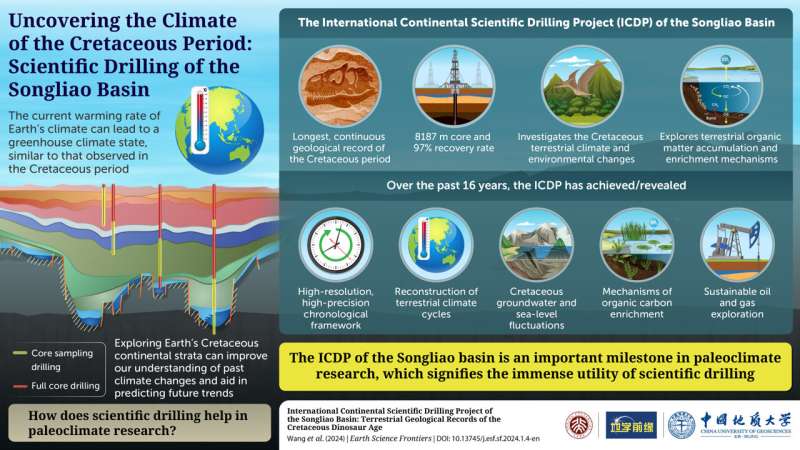New Earth Science Frontiers reports on a collaborative international effort that has yielded groundbreaking insights into Earth's past climate. The International Continental Scientific Drilling Project (ICDP), launched in 1996 by Germany, the U.S., and China, has achieved remarkable success in its exploration of the Songliao Basin in China.
Driven by concerns about rising global temperatures and the potential for a future ice-free planet, scientists are looking to the past to understand how our climate might change. Scientific drilling, a technique that extracts core samples from Earth's depths, offers a window into different historical periods.
The focus of the Songliao Basin project, led by Professor Wang Chengshan of China University of Geosciences, is the Cretaceous period, a time marked by a prominent greenhouse climate that supported dinosaurs. Professor Chengshan emphasizes, "By studying the past, we can predict the future. Understanding past climate changes can help us navigate future global warming trends, and the ICDP's work in the Songliao Basin has been instrumental in this pursuit."
The project boasts several significant achievements. It has retrieved the world's longest core sample (8,187 meters) specifically from the Cretaceous period, with an impressive 97% recovery rate. This core has been vital in establishing a highly detailed and accurate chronological framework for the Cretaceous, along with revealing patterns of terrestrial climate change during that era.
Furthermore, the drilling project has provided evidence for fluctuations in Cretaceous sea levels and confirmed past seawater incursions into the Songliao Basin, a topic of past scientific debate. These findings hold promise for not only predicting future climate trends but also for the sustainable exploration of oil and gas resources in the region.
Professor Chengshan underlines the project's significance: "We've examined over 50 million years of Cretaceous climate evolution, demonstrating that scientific drilling is essential for obtaining reliable, high-quality geological records for paleoclimate research."




0 Comments